
The Grounds Guys provide insight on why identifying your type of grass is important.
|
Last Updated July 13, 2023
The key to having a lush, green lawn is choosing the right type of lawn grass for your unique climate and lifestyle. The experts at The Grounds Guys® can help you decide which type of grass is best for you. Read on to learn more about the different types of grasses to determine which will best suit your needs, whether you are starting from scratch or ready to make a change for the better.
Table of Contents:
Location, Location, Location
Lawn grass is typically divided into two categories: warm-season and cool-season grasses. Choosing the right grass for your property starts with identifying your region. Is your home located in the North, South, or transition zone? Once you determine your zone, you can select a grass that is suited for your particular region.
Warm Season Grasses
Warm-season grasses exhibit active growth between April and October and are heat and drought-tolerant. During the winter months and cooler temperatures, most varieties will enter a period of dormancy where they may turn brown and stay that way until the warmer temperatures return. Popular examples of warm-season grasses are:
Bahia Grass
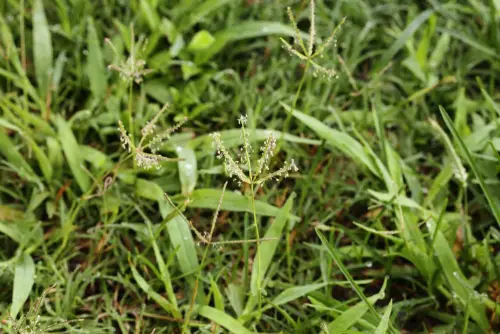
Soil Type – Tolerates poor soil conditions
Shade Tolerance – Some shade
Foot Traffic – Moderate to high
Bermuda Grass
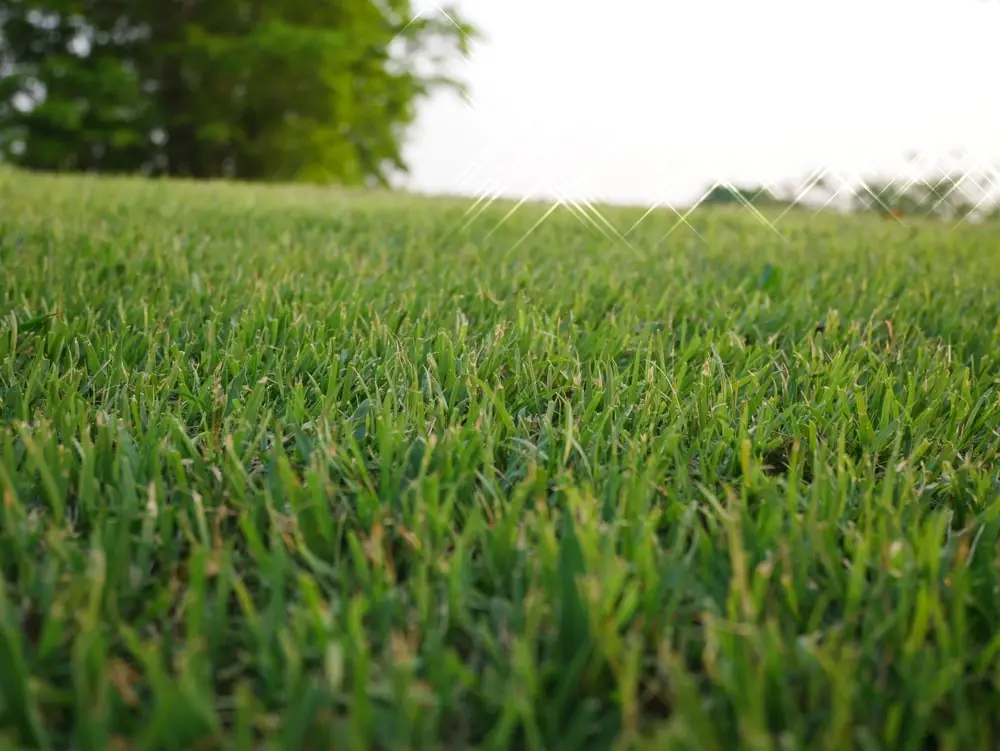
Soil Type – Tolerates poor soil conditions
Shade Tolerance – Low
Foot Traffic – Moderate to high
Buffalo Grass
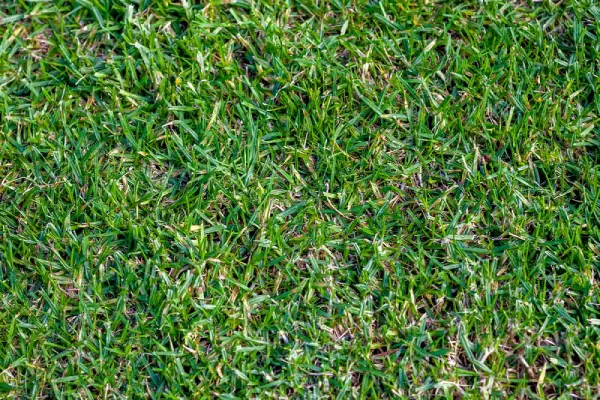
Soil Type – Well-drained soil is required
Shade Tolerance – Low
Foot Traffic –High
Centipede Grass
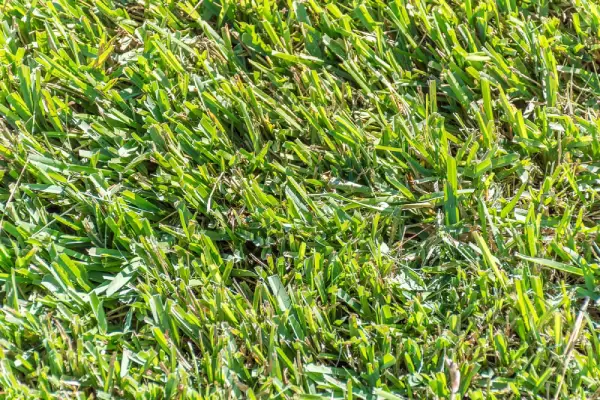
Soil Type – Prefers low pH soils
Shade Tolerance - Low
Foot Traffic - Low
St. Augustine Grass
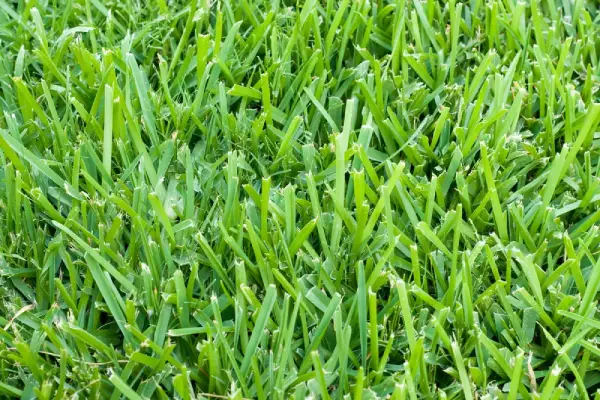
Soil Type – Well-drained soil is required
Shade Tolerance – High
Foot Traffic - Moderate
Zoysia Grass
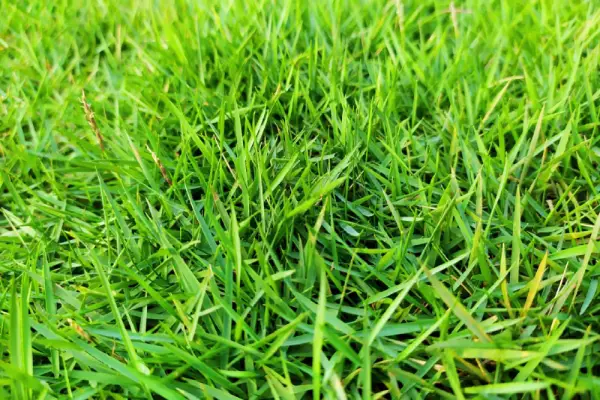
Soil Type – Well-drained soil is required
Shade Tolerance – Low to moderate
Foot Traffic - High
Cool Season Grasses
Cool-season grasses are the ideal choice in areas with extreme seasonal fluctuations, where summers are hot and dry, and winter temperatures fall below freezing. They grow most actively during the spring and fall when temperatures range between 60 and 75 degrees and may go dormant during periods of extreme heat. Some of the most common lawn grass for cool-season climates are:
Annual Ryegrass
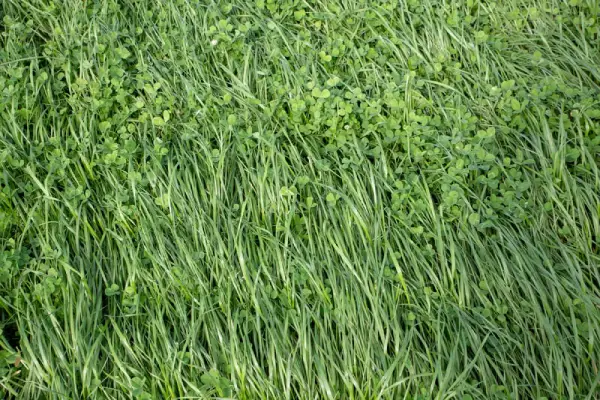
(requires annual planting)
Soil Type – Well-maintained soil is required
Shade Tolerance – Moderate
Foot Traffic - Moderate to high
Perennial Ryegrass
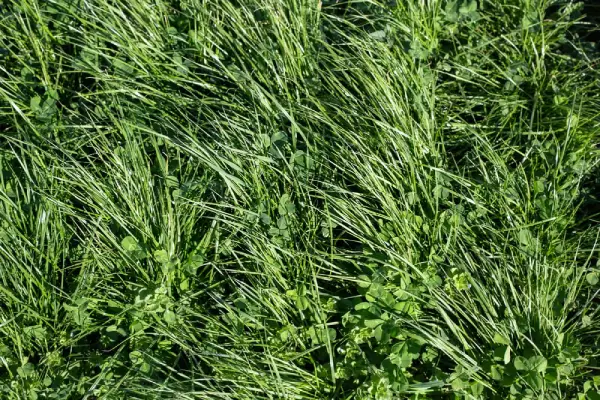
Soil Type – Well-maintained soil is required
Shade Tolerance – Moderate
Foot Traffic – Moderate to high
Bentgrass
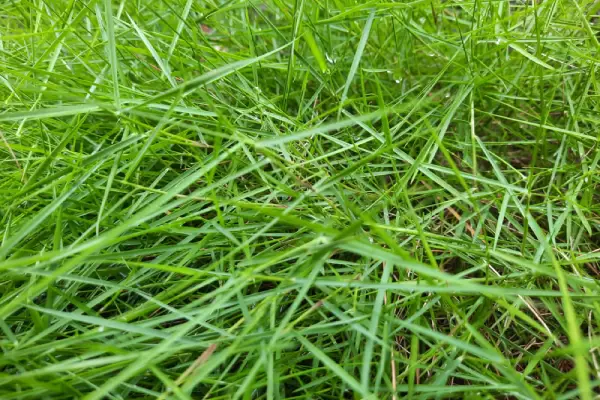
(carefully maintained soil is required)
Shade Tolerance – Moderate
Foot Traffic – High
Fine Fescue
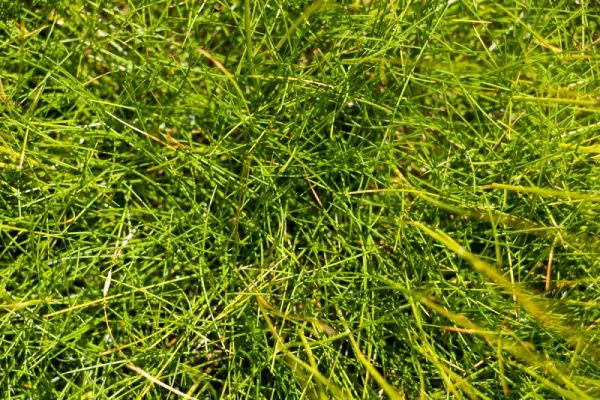
Soil Type – Tolerates poor soil conditions
Shade Tolerance – High
Foot Traffic– Low to moderate
Kentucky Bluegrass
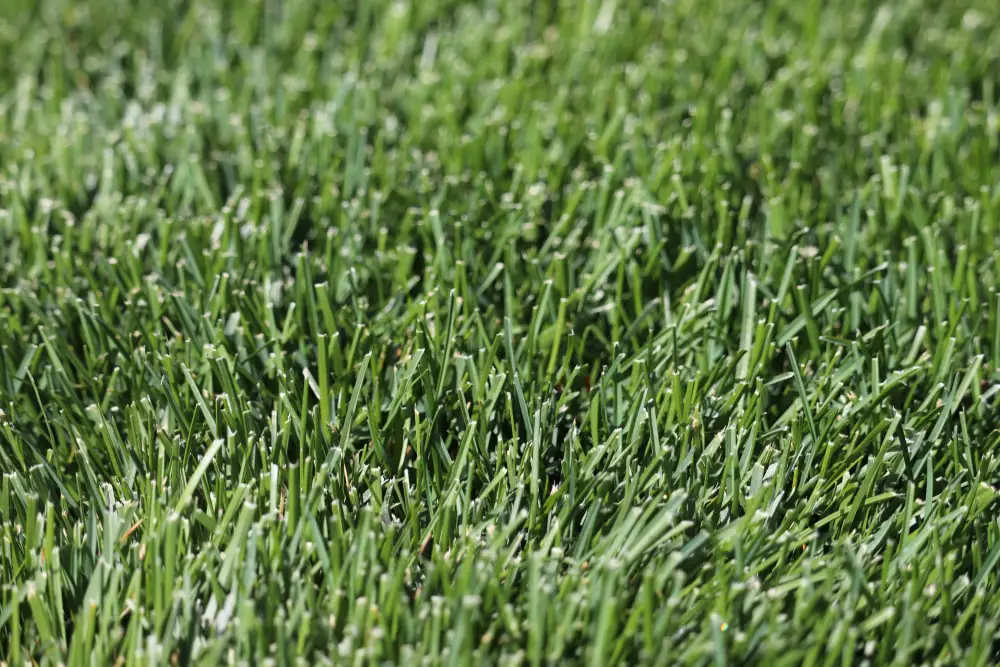
Soil Type – Well-drained soil
Shade Tolerance – Moderate
Foot Traffic – High
Tall Fescue
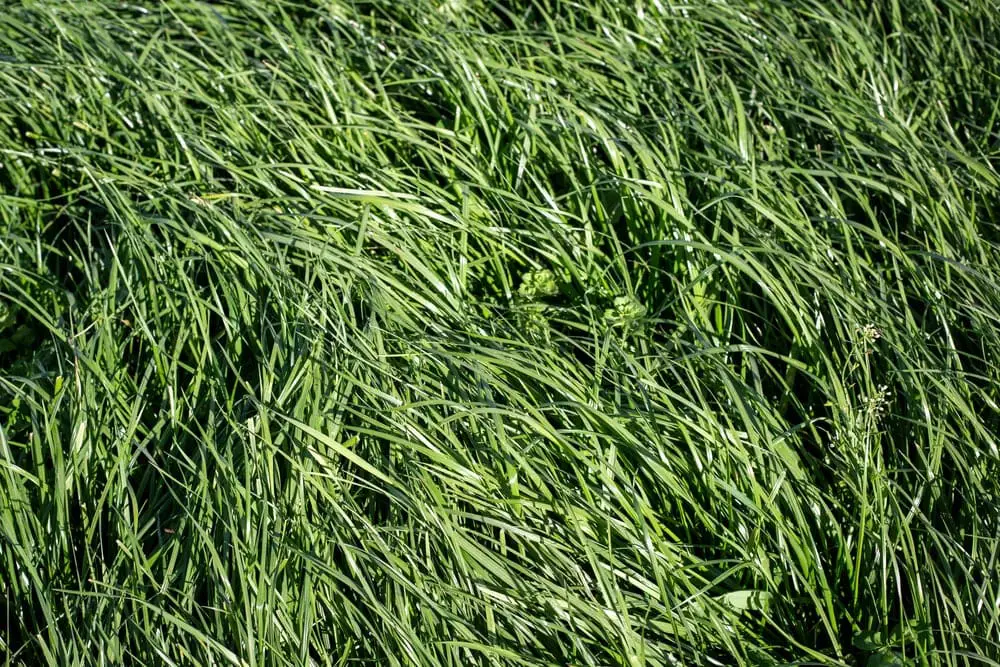
Soil Type – Tolerates poor soil conditions
Shade Tolerance – Medium
Foot Traffic – Medium to high
Grasses in the Transition Zone
This area of overlap between the two major zones requires a type of grass that can endure a variety of climate types and tolerate cold weather. Lawns may be seeded with a mixture of warm and cool grasses to ensure optimal growth year-round, although the results may vary greatly depending on the exact location, altitude, and quality of lawn care. Other factors determining the success of transitional grass types include the amount of sun and shade, water availability, and foot traffic the lawn receives.
Different types of lawn grass will do well in this region, including common lawn grass types such as Bermuda, zoysia, and fescue
Frequently Asked Questions (FAQs)
Can I mix different types of grasses in my lawn?
With so many different types of lawn grass available, you might be tempted to mix varieties. But since cool-season grasses thrive when temperatures are cooler, and warm-season grasses do best during the summer, you won’t get the desired results you’re looking for when you combine different types of grasses. However, you can mix different types of lawn grass varieties, but they must be the same species. The problem is that each type of grass usually has different sun, water, and nutrient requirements, so one grass might suffer while the other thrives.
How do I know which type of grass is best for my lawn?
Your location is one of the most essential factors in determining which type of grass is best for your lawn. For example, suppose you live in the Northern region of the U.S. In this case, cool-season grasses will thrive. These include common lawn grass such as Bluegrass or regrass. Warm-season grasses will thrive on landscapes in the Deep South/Gulf region, such as Bermuda and centipede grasses. Finally, transitional grasses, like zoysia, fescue, and Bermuda, will thrive in the areas between the Deep South/Gulf and Northern Regions, such as Southern California, Tennessee, Kentucky, and other transitional climate states.
Which grass is best for areas with varying temperatures?
There are over 10,000 different types of grass for lawns in the world. But if you live in an area where temperatures vary, you’ll want a grass type that can tolerate both cold and warm temperatures. These types of grasses are transitional grasses, which include common lawn grass types such as Bermuda and St. Augustine, which you’ll find predominately throughout the southeast states.
Choose the Right Grass for Your Lawn
Selecting the best lawn variety boils down to choosing a grass type that will thrive where you live and under the right conditions — based on the amount of shade and sun it requires. You'll also want to consider other factors, such as your family's needs, watering requirements, and the amount of time and effort necessary to keep it healthy and looking its best. Is the grass purely ornamental, or will children and pets use the lawn daily? Do you live in an area with water restrictions?
Finally, while proper lawn maintenance is essential to keep any type of grass healthy and thriving, it requires time and effort. If you need help, find The Grounds Guy's location near you and let our experts do all the work. We specialize in lawn maintenance and landscape services that boost curb appeal, help control pests and weeds, and create a yard your neighbors will envy. And with work that’s backed by the Neighborly Done Right Promise™, your satisfaction is guaranteed. Contact us today to request a free estimate!
FAQs About Types of Lawn Grasses
Our 200 franchise locations across the U.S. and Canada share a common goal — using our years of experience and expertise to help you bring the vision for their property to life. This includes answering questions you have about landscaping and lawn care. Below are answers to some of the most frequently asked questions about types of grass.
What is the difference between cool-season and warm-season grass?
Cool-season and warm-season grasses differ primarily in their growth patterns and temperature preferences. Cool-season grasses grow most actively during spring and fall when temperatures range between 60–75°F, making them ideal for northern regions with freezing winters; they enter dormancy during extreme summer heat. Cool-season grass types include Kentucky bluegrass, tall fescue, and perennial ryegrass.
Warm-season grasses thrive from April through October. They experience peak growth in summer heat and have excellent drought tolerance. However, they enter dormancy during winter months, often turning brown until warmer temperatures return. Popular types of grass suitable for warm seasons include Bermuda, Zoysia, and St. Augustine grass.
Key growth differences between the grass types:
- Cool-season grasses: Active growth in 60–75°F temperatures (dormant in extreme summer heat)
- Warm-season grasses: Active growth in 80–95°F temperatures (dormant in temperatures below 50°F)
Which of these grass types is right for your lawn depends entirely on your regional climate. Generally, northern areas favor cool-season varieties and southern regions favor warm-season grasses. If you’re unsure, consult a landscaping professional for a recommendation based on your location.
Which type of lawn grass is best suited for shaded areas?
Several grass types demonstrate excellent shade tolerance, though their performance varies based on your climate zone. For cool-season regions, fine fescue offers the highest shade tolerance among lawn grasses, thriving in only 4–6 hours of sunlight daily. Kentucky bluegrass and perennial ryegrass provide moderate shade tolerance, requiring at least 6 hours of filtered sunlight daily.
In warm-season climates, St. Augustine grass stands out as the most shade-tolerant option, performing well with just 4–5 hours of daily sunlight. Zoysia grass offers low-to-moderate shade tolerance, while Bermuda and centipede grasses struggle in shaded conditions and require full sun exposure.
Shade-tolerant grass rankings:
- Excellent shade tolerance: Fine fescue (cool-season), St. Augustine (warm-season)
- Moderate shade tolerance: Kentucky bluegrass, perennial ryegrass, annual ryegrass
- Low shade tolerance: Tall fescue, Zoysia, Bahia grass
- Poor shade tolerance: Bermuda, centipede, buffalo grass
For heavily shaded areas receiving less than 4 hours of sunlight, consider alternative ground covers or consult with a lawn care professional about specialized grass blends designed for your region.
How do I choose the right grass type based on region and climate?
Selecting the appropriate grass type starts with identifying your climate zone, as this determines which grass species will thrive long-term. Northern regions with freezing winters and moderate summers require cool-season grasses like Kentucky bluegrass, tall fescue, or fine fescue that can withstand temperature fluctuations and remain green during cooler months.
Southern regions with hot summers and mild winters benefit from warm-season grasses, such as Bermuda, Zoysia, or St. Augustine, which tolerate heat stress and drought conditions while going dormant during brief winter periods.
The transition zone (areas like Tennessee, Kentucky, and Southern California) presents unique challenges requiring careful grass selection. These regions can support both cool and warm-season varieties, though success depends on specific microclimates, elevation, and local weather patterns.
Regional grass selection guide:
- Northern states: Kentucky bluegrass, tall fescue, fine fescue, perennial ryegrass
- Southern states: Bermuda, Zoysia, St. Augustine, centipede, Bahia grass
- Transition zone: Tall fescue, Zoysia, Bermuda (climate-adapted varieties)
- High altitude areas: Cool-season grasses regardless of latitude
When exploring types of grasses, consider additional factors including soil drainage, sun exposure, foot traffic levels, and maintenance preferences. Professional soil testing reveals pH levels and nutrient content, which can influence grass type suitability. Consult a landscaping professional to ensure you select a variety that offers a good match for both your climate zone and the specifics of your yard.
This article is intended for general informational purposes only and may not be applicable to every situation. You are responsible for determining the proper course of action for your home and property. The Grounds Guys are not responsible for any damages that occur as a result of this blog content or your actions. For the most accurate guidance, contact The Grounds Guys location nearest you for a comprehensive, on-site assessment.